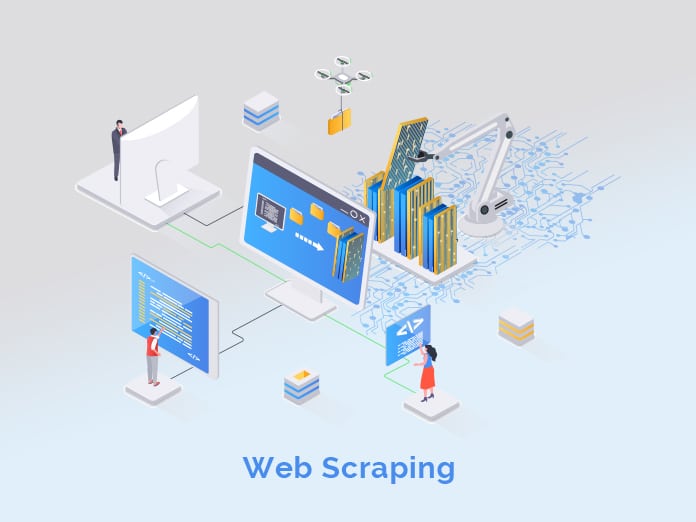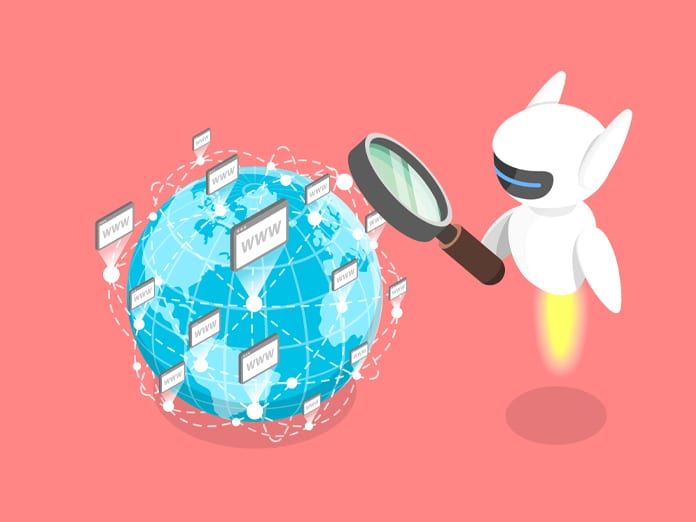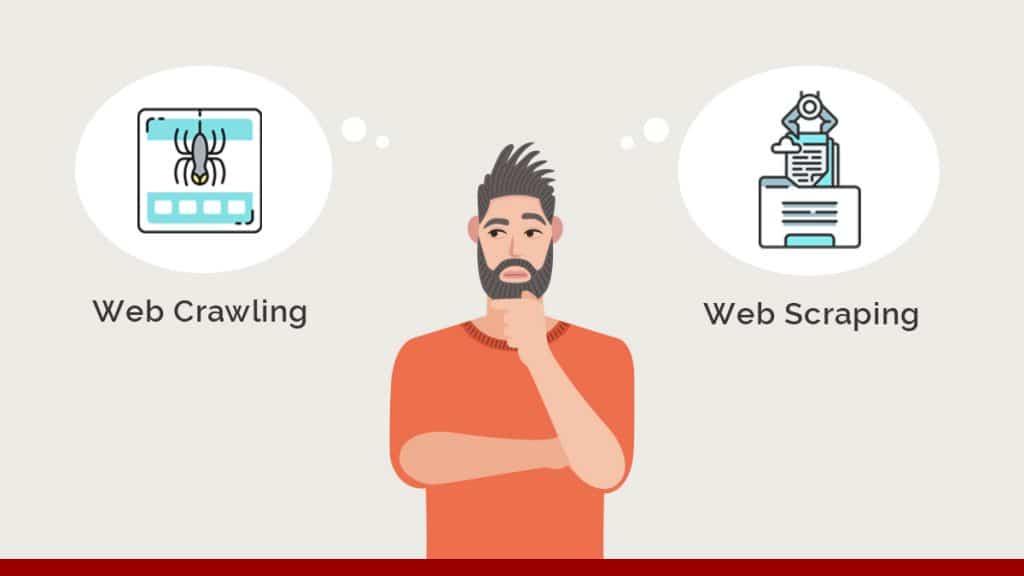Jump to Section
Crawlers Depths on the Web Pages
Web scraping and web crawling are two terms that you often hear interchangeably as if the two words are synonyms. The meaning of crawling is to deal with huge data sets in which you build your crawlers that crawl to the depths of the web pages. Web scraping, on the other hand, refers to retrieving information from the website.
Most people assume it to be the same task in a daily cycle. Although they may seem to generate the same results, the two strategies are somewhat different. Both of them are necessary for the recovery of data, but the process involved and the type of information requested vary in multiple ways.
Both the techniques may appear the same, but there are some significant differences between web scraping and web crawling; these two words are closely intertwined. In the entire data collection process, both scraping and crawling go hand in hand, and usually, when one stops, the other follows.
Let’s start with the definitions.
What is Web Scraping?
Web scraping is an automated process to access vast volumes of data from a website. Most of this information is unstructured data in an HTML format, which is a spreadsheet or a database is then converted into structured data to be used in different applications. To extract data from websites, there are several distinct ways to perform web scraping. These involve using online utilities, specific APIs, or even developing your code from scratch for web scraping.

Web scraping is the best choice, but some websites do not allow users in a standardized way to access vast volumes of data or are just not that technologically advanced. It’s best to use Web Scraping to scrape the data from the website.
The scraping method is important to filter and extract various raw data types from different sources into something useful and informative. Scraping data is much more reliable than crawling data for what it collects. It can take things out and make it harder to get information, such as commodity prices.
One of the minor setbacks of data scraping is that it can duplicate data because it does not exclude data from the different sources from which it collects data.
Data scraping services can perform activities that are unable to be completed by software crawling tools, such as executing javascript, submitting data formats, defying robots, etc.
Web scrapers may be differentiated based on several different parameters, including self-built or pre-built web scrapers, browser extension or web scrapers applications, and cloud or local web scrapers.
You can have web scrapers that are self-built, but that requires advanced programming knowledge. And in your web Scraper, if you want more functionality, then you need even more expertise. On the other hand, scrapers that can easily be downloaded and run are previously developed pre-built web scrapers but with some limitations.
Web Crawler Meaning, Definition & Explanation
A crawler is a computer program that scans documents on the web automatically. Crawlers are primarily programmed so that browsing is automated for repetitive behavior. Search engines use crawlers most frequently to browse the Internet and create an index. Other crawlers search for various data types, such as RSS feeds and email addresses. The word crawler originates from the Internet’s first search engine: the web crawler. “Bot” or “Spider” are also synonyms. Googlebot is the most well-known web crawler.

To extract the data, the data crawler drills deep into the World Wide Web. To find out what’s relevant to your quest, think of crawlers or bots scavenging through the Internet. Crawlers operate on an algorithm and follow the instructions. Like Google or Bing, web browsing systems run a lot.
Links to many different pages follow the crawling cycle. In this method, crawlers scrape data. They browse through sites and collect all the relevant information that indexes them and checks for all links in the related pages.
In conclusion, we can claim that the object of data crawling is to deal with large data sets where your crawlers (or bots) are designed that crawl to the deepest web pages. On the other hand, data scraping refers to the collection of any source’s data. More often than not, we refer to the extraction of data from the web as scraping, regardless of the methods involved, and this is a huge misconception.
Crawling or Scraping? Comparison and Contrast
The tools for data scraping have a limited feature that can be changed or adapted to any size. Data scraping can extract current stock values, hotel rates, listings of real estate, etc. Data crawling is, at the same time, much more complicated and goes deep into the complexity of analysis. They will scan for all backlinks and not stop until anything that is connected remotely is verified. Data crawling is carried out on a large scale that includes additional precautions so as not to offend the source or violate any regulations.
Data scraping and data crawling are related techniques to make it confusing for you. But after reading this article, we hope you’ll be clear about the context, the points of distinction, and the use of both.
Let’s figure out all the important differences between these two: web crawling vs. web scraping.
| Web Crawling | Web Scraping |
| It only “crawls” the data (goes through the selected targets) | It only “scrapes” the data (takes the selected data and downloads it) |
| It can be done only with a crawling agent (a spider bot) | It can be done manually by using a system. |
| A lot of content online gets duplicated, and in order to not gather excess, duplicated information, a crawler will filter out such data. | Duplication of data is not always necessary as it can be done manually, hence in smaller scales. |
Services for Businesses Are Required
To understand which of the two is suitable for your business needs, one must seek competent advice to make sure that secure and legal data extraction is done with utmost care and accuracy. It is crucial for your business’s success that you use the best web-based scraping services/crawling tools available.
You don’t have to spend long hours in this manner, resulting in a poorly done job that involves coping with legal difficulties. If done right, these services will provide you with the vital support you need to get ahead in your industry with the people who know what they’re doing.
Many people don’t understand the difference between web scraping and web crawling—this uncertainty results in misunderstandings regarding what service a client wants. We hope to put an end to this confusion here.
To recap, the important differences between web scraping vs. web crawling techniques: crawling involves going through the data and analyzing it. Extracting the data is known as web scraping. As far as the terms web or data are concerned, it includes the Internet if the term web is used. Unless it consists of word info, crawling activities do not necessarily involve the Internet.
Data scraping is important for a company, whether to acquire customers or business and revenue growth. The future of data scraping looks quite promising as the Internet becomes a key starting point for businesses to collect information, so more businesses will need the publicly available data to gather customer knowledge and remain ahead of the competition.
Please get in contact with us today if you want to know more about data extraction solutions or are already interested in web scraping and want to start your data/web scraping project.
- LinkedIn Scraper | LinkedIn Data Extractor Software Tool - February 22, 2021
- Is Web Scraping Legal? - February 15, 2021
- What Is Data Scraping? - February 10, 2021

